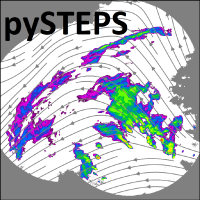pysteps.io.exporters.initialize_forecast_exporter_netcdf#
- pysteps.io.exporters.initialize_forecast_exporter_netcdf(outpath, outfnprefix, startdate, timestep, n_timesteps, shape, metadata, n_ens_members=1, incremental=None, **kwargs)#
Initialize a netCDF forecast exporter. All outputs are written to a single file named as ‘<outfnprefix>_.nc’.
- Parameters:
outpath (str) – Output path.
outfnprefix (str) – Prefix for output file names.
startdate (datetime.datetime) – Start date of the forecast.
timestep (int) – Time step of the forecast (minutes).
n_timesteps (int) – Number of time steps in the forecast this argument is ignored if incremental is set to ‘timestep’.
shape (tuple of int) – Two-element tuple defining the shape (height,width) of the forecast grids.
metadata (dict) – Metadata dictionary containing the projection, x1, x2, y1, y2, unit attributes (projection and variable units) described in the documentation of
pysteps.io.importers.n_ens_members (int) – Number of ensemble members in the forecast. This argument is ignored if incremental is set to ‘member’.
incremental ({None,'timestep','member'}, optional) –
Allow incremental writing of datasets into the netCDF files.
The available options are: ‘timestep’ = write a forecast or a forecast ensemble for a given time step; ‘member’ = write a forecast sequence for a given ensemble member. If set to None, incremental writing is disabled.
- Returns:
exporter – The return value is a dictionary containing an exporter object. This c an be used with
pysteps.io.exporters.export_forecast_dataset()to write datasets into the given file format.- Return type:
dict
